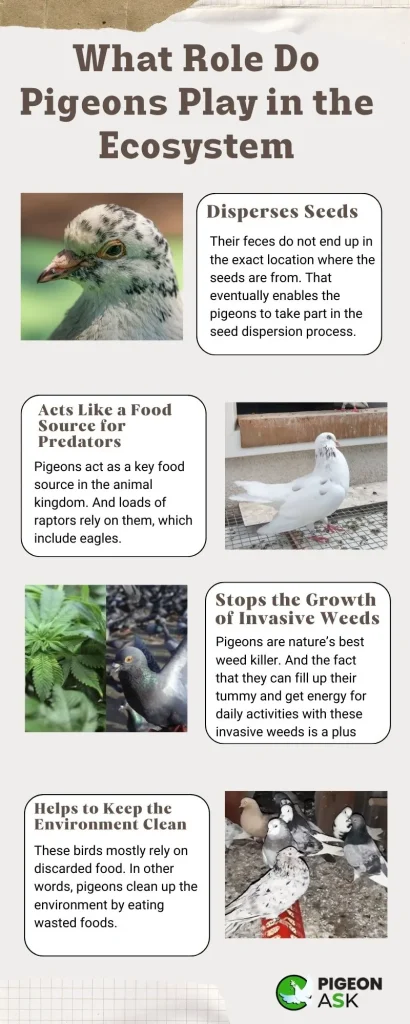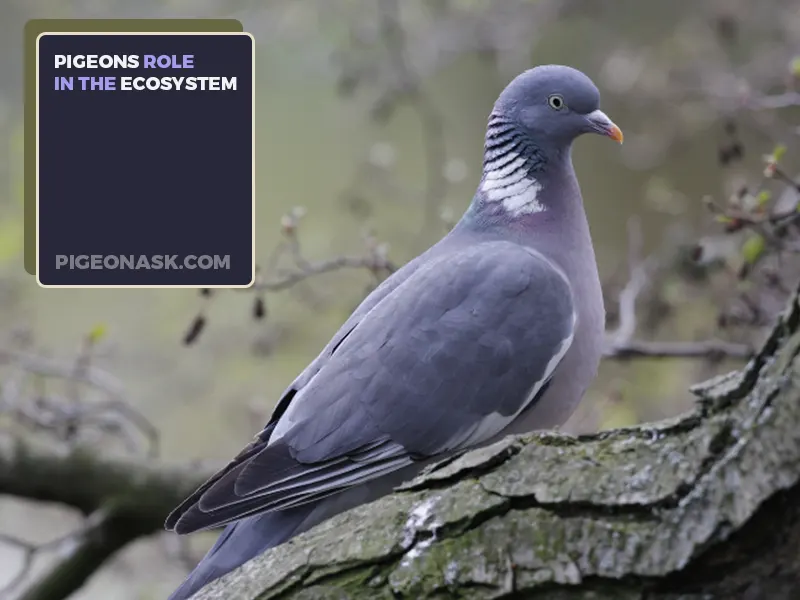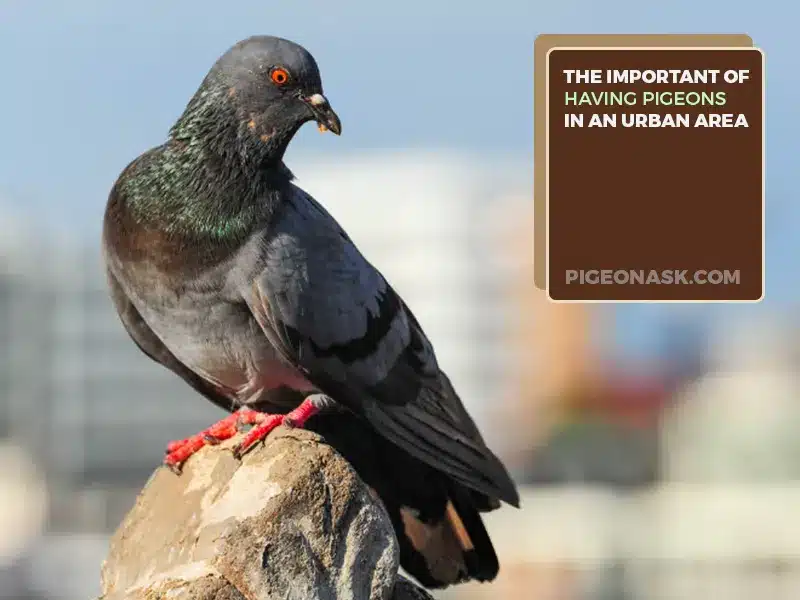Why Are Pigeons Important? Can’t We Live Without Them?
Otherwise known as rock doves, pigeons are mostly known for creating a nuisance everywhere they go. And let’s not forget that they leave droppings even on people.
But still, why do people give priority to these birds? Why are pigeons important? The main reason why pigeons are important is that they play a crucial role as pollinators. Even though they are not as efficient as bees, they properly pollinate plants, especially those with large and open flowers.
However, that is not the only reason why pigeons are considered necessary. There’s much to it, which you can learn all about by continuing to read.
Related articles about pigeon blogs:
What Value Do Pigeons Have?
Although it might not be that evident, pigeons bear a lot of important values. And the most important of them all is their historical and cultural value. As you might know, pigeons have a rich history with humans.

This history dates back thousands of years. Humans domesticated pigeons not only for food but also as messengers in war. And by playing the role of messengers, they served like flying soldiers in many battles.
Besides that, pigeons play a role in many scientific kinds of research. Their ability to navigate long distances and intelligence made them part of many studies. They also provide input in many fields, including neuroscience and genetics.
What Role Do Pigeons Play in the Ecosystem?
As hinted earlier, the most important role of pigeons to is to pollinate plants. However, how do they pollinate? And most importantly, what other roles do pigeons play in the ecosystem? Let’s take a closer look:

01. Disperses Seeds
Basically, seeds make up most of the pigeon’s diet. And they eat a wide variety of seeds. Do you know where these ingested eventually end up? Yes, these birds pass them off through their feces.
So, how is that important? Well, their feces do not end up in the exact location where the seeds are from. That eventually enables the pigeons to take part in the seed dispersion process.

02. Acts Like a Food Source for Predators
There’s no denying that pigeons act as a key food source in the animal kingdom. And loads of raptors rely on them, which include eagles. This eventually enables the pigeons to maintain sustenance in the animal ecosystem.
In fact, with human intervention, rock doves played a crucial role in conserving one of the endangered raptor species. For example, thanks to pigeons being in most areas of the UK, Peregrine Falcons got off the endangered list.
03. Stops the Growth of Invasive Weeds
Hate taking the weed off of your garden? Well, you are not the only one. It takes a lot of time and effort to get the weed off. But do you know which animal will do it for you for free? Yes, pigeons!
In fact, pigeons are nature’s best weed killer. And the fact that they can fill up their tummy and get energy for daily activities with these invasive weeds is a plus.
04. Helps to Keep the Environment Clean
As you might already know, pigeons in urban areas depend on humans for food. And these birds mostly rely on discarded food. In other words, pigeons clean up the environment by eating wasted foods.
We have covered interesting blog about “pigeons role in urban Ecosystems.” If you want, you can check here!
What Are the Benefits of Having Pigeons in an Urban Environment?
Wondering what role pigeons play in urban settings? Aside from keeping the urban environment clean, pigeons help in these regards:
01. Controls Pests
Pigeons do not only rely on discarded food in urban settings. They will also peck at insects when they come across them. By doing so, they can keep the pest population in control.

02. Monitors Environment
You will find plenty of birds in the cities. And as they are easy to observe, many studies included them for monitoring different environmental factors. That includes air quality and the pollution level of the urban environments.
03. Maintains the Biodiversity of the City
Raptors are present in the cities too. And they mainly come by to hunt pigeons. By being prey, pigeons help keep the city’s biodiversity in proper condition.
What Would Happen If There Were No Pigeons?
The extermination of pigeons would have a huge impact on different sectors of nature and the lives of humans. Some of the potential consequences are:
01. Ecological Disruption
As discussed earlier, pigeons act as a food source for many raptors. So, when pigeons are absent, the raptor population will decline. There will be an increase in insects too. And the seed dispersion process will slow down.

02. Pigeons and Human Health
Pigeons are known for carrying diseases. In fact, pigeons are known for being the medium for avian flu and salmonella. So, when pigeons are gone, these diseases may spread at a slower rate.
However, you can not forget that pigeons play a crucial role as an indicator of environmental health. Where there are pigeons, there is less pollution. That means the absence of pigeons will also negatively affect human health.
03. Scientific Consequences
A lot of scientific research relies on pigeons. Most importantly, these birds play a significant role in neuroscience and animal behavior. Without them, researchers will find it hard to make progress in these fields.
Final Words
You can come up with many things when thinking about why are pigeons important. These birds might seem annoying and dirty to us, but they play a significant role in many factors. So, you should not do anything to harm these birds.
That was pretty much all about the topic. If you found this post helpful, you will likely find all our future posts interesting. But to catch up with our articles, it would be a good idea for you to connect with our Pinterest, and Twitter accounts.
Article Reference:
- Academic.oup.com/jue/article/4/1/juy024/5214715
Image Credit:
- Canva.com/photos
